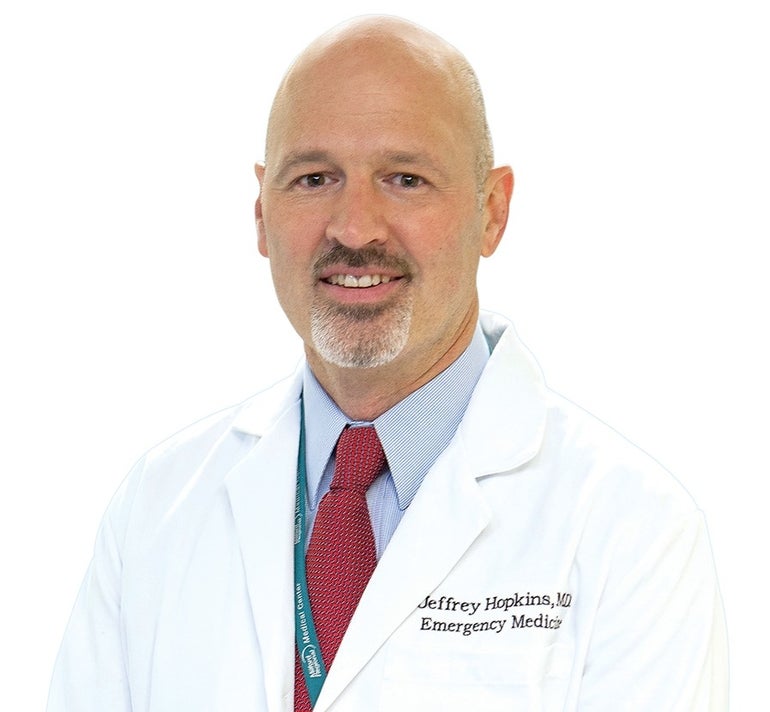The emergency department staff at Milford Regional Medical Center typically prepares for a shift including patients seeking care for car accidents, heart attacks, or the rare mass casualty incident. No staff members had experienced a pandemic.
Get Instant Access to This Article
Subscribe to Worcester Business Journal and get immediate access to all of our subscriber-only content and much more.
- Critical Central Massachusetts business news updated daily.
- Immediate access to all subscriber-only content on our website.
- Bi-weekly print or digital editions of our award-winning publication.
- Special bonus issues like the WBJ Book of Lists.
- Exclusive ticket prize draws for our in-person events.
Click here to purchase a paywall bypass link for this article.
The emergency department staff at Milford Regional Medical Center typically prepares for a shift including patients seeking care for car accidents, heart attacks, or the rare mass casualty incident. No staff members had experienced a pandemic, like with colleagues at hospitals virtually everywhere, forcing a medical response of an unprecedented length and severity. Milford Regional – which at its peak had more than four dozen inpatient coronavirus patients – was led in large part by Dr. Jeff Hopkins, the surge chief for the pandemic.
How would you describe what the last few months have been like?
It’s certainly an unprecedented time. We’ve never seen anything like this in our careers. In emergency medicine, this is exactly what we prepare for: a response to handle whatever situation comes our way. There are usually things on a lower-magnitude scale, like mass casualty incidents, but those tend to be very time-specific. We prepare for times like that. Those are smaller-scale examples of what we typically deal with on a day-to-day basis. This is something that’s just such a higher magnitude response that was more difficult than we ever expected.
What has the hospital’s response been like?
We totally transformed the emergency department. We created an alternative treatment area, one we fortunately didn’t have to utilize. But the amount of time that went into creating the safest environment, it was inspiring to see how people came together. There weren’t people running away from this – they were running to it. They were saying, “How can I help?” They’re putting themselves at risk and putting their families at risk. A lot of providers brought a lot home with them from the pandemic, which was difficult to process while you’re actually in the thick of it.
How difficult was it for medical providers to treat coronavirus patients?
The patients we were seeing were arriving with much more complex presentations. Nurses in our hot zones were suited up in personal protective equipment for their whole shift, or they would spend half their shift there and switch with someone. Everyone put on their game face and showed up every day, and managed patients no matter the circumstances. You sort of get that adrenaline rush, that it’s time to take care of whatever patients come in the door. This was a bigger challenge, but it goes along with our mentality of treating anyone no matter what, 24/7/365. I never saw any hesitation.
How have providers dealt with the pandemic emotionally?
There’s a higher concentration of that need to decompress. We’ve set up a wellness committee at Milford, with Zoom calls with our colleagues in intensive care, and primary care providers and caregivers in the community and specialists who may not be directly involved in emergency care. We’ve talked about burnout and providing wellness to the provider community at Milford.
Dealing with end-of-life issues has been a part of it. I had a case, a man in his 80s who came in unresponsive and was put on comfort-measures only. I spoke to his family through FaceTime on an iPad. They had to say goodbye that way. In some ways it was rewarding to come up with some solution to have family members have some communication, but it was difficult. It wasn’t the traditional way of having family members there, but patients weren’t alone.
Do you worry about post-traumatic stress symptoms for providers?
It’s gained a lot more traction recently. A lot of solutions have been put in place. At our hospital, we have an exercise challenge to all providers to encourage people to get out and get exercise, and develop teams to take your mind off the day-to-day grind of taking care of really sick patients.
There will be long-term effects of this pandemic we don’t even know about. Worrying about bringing home an illness to your family – usually you can just leave work at work. But you’re doing that now, or second guessing yourself more.
This interview has been edited and condensed by Worcester Business Journal News Editor Grant Welker.

